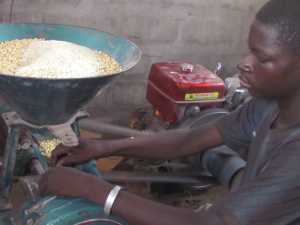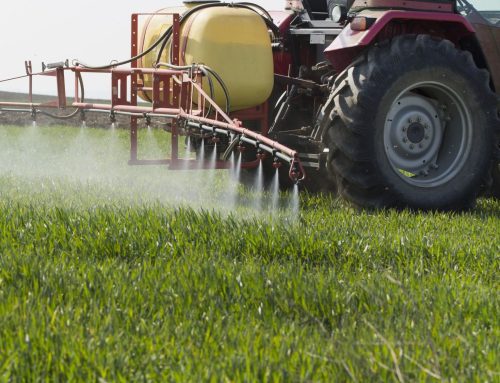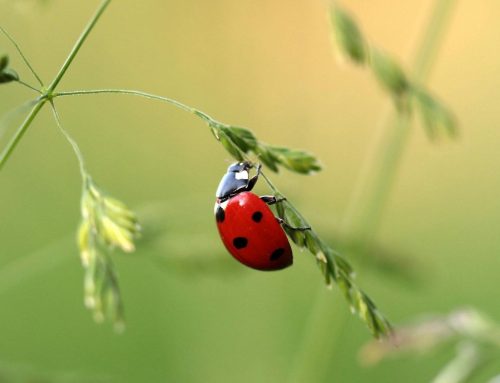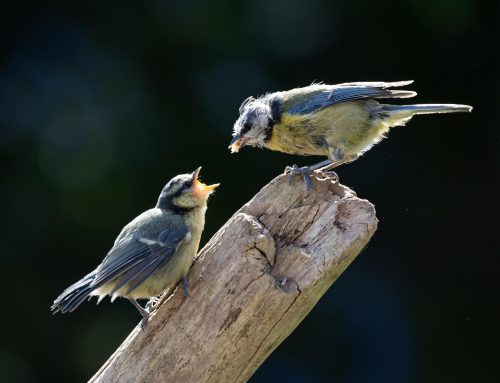On Tuesday 28th March 2017, Sheila Willis, PAN UK’s Head of International Programmes, travelled with a group from Obepab to the small village of Aliwou in central Benin. The temperature was around 40 C and it had not rained for weeks. Villagers gathered to meet them and although they were already very familiar with Obepab’s field agent, Dieudonne, they had never had a foreigner in the village before and Sheila enjoyed a very warm welcome.
Conversation soon turned to the new milling equipment, which had been delivered a month before (paid for by the Big Lottery Fund). The villagers expressed their happiness at having this opportunity and said that the project brings very real benefits to the village. They showed their visitors the new house they had built for the mill, with an extra room for storage and the mill operator. The young man who is now in charge of the mill is paid from the proceeds of milling. The primary purpose of the milling equipment is to enable the villagers to produce organic, biopesticide from neem seeds. Neem works by discouraging insects from feeding on the cotton and also reduces their fertility, thereby reducing pest numbers. It also affects their behaviour, making pests more vulnerable to predators. The seeds are very hard to grind and doing so is a long and arduous task. The mill can produce large quantities of powdered neem in very little time. This task is undertaken in August/September when neem seeds are available. The rest of the year the mill is cleaned and used for milling maize.
Previously, the women of the village walked 5 km each way to the nearest grain mill, carrying around 30 kg of maize. They would undertake this back-breaking journey 1-3 times per week. Now, they have a mill just a few yards from their home. The women were asked how they plan to use the time saved. They all agreed that they would like to spend more time in the fields, preparing and improving their land and perhaps increasing the area of land under cultivation.

The following day the group visited the much larger village of Adjigou in the Aklampa area. They have also received new milling equipment, for which they were extremely grateful. The nearest mill was previously a 90 minute walk away. The women said they planned to use the time saved to work their land and sell their produce.
The group estimate that they can generate around 5000 CFA per day by charging for grinding maize. Almost half the proceeds will pay for the fuel and the machine operator. Once sufficient money is put aside for maintenance, there will be significant income to contribute to a community fund. In this case, the funds will be allocated according to the wishes of the women’s committee of the organic cotton cooperative. They are thinking of investing in a small shop to sell their organic produce. Like the previous village, priorities also include drinking water; secure storage for their cotton crop and credit to allow them to invest in land preparation.
Find out more about the work PAN UK has done with cotton farmers in Benin.






